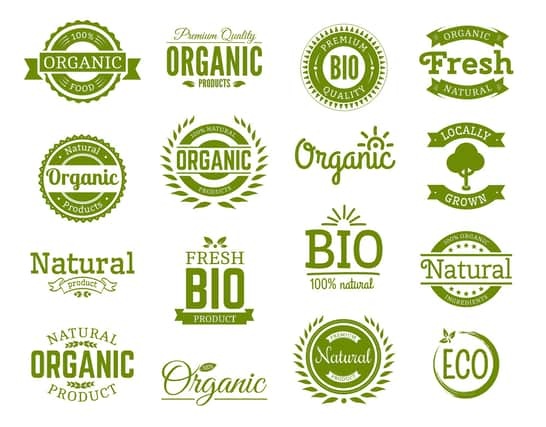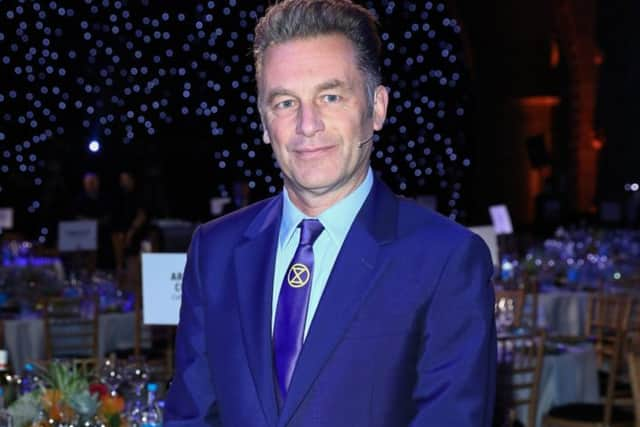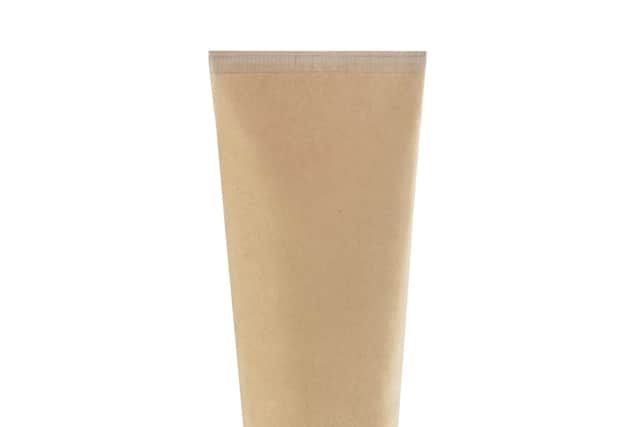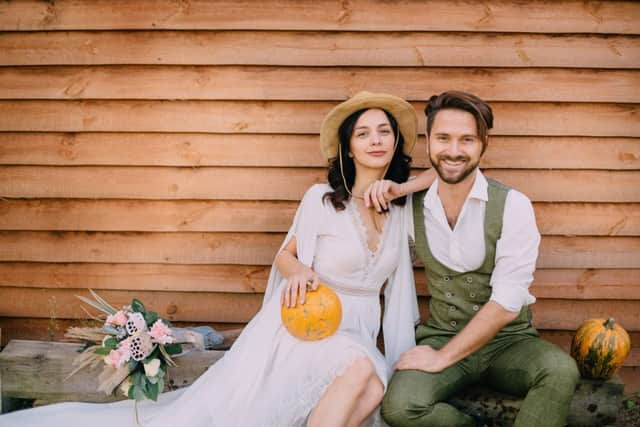Going Green - Many things are labelled eco-friendly but can we trust them all?


Latest article from Angela Terry
Green Green campaigner and consumer expert, Angela Terry, separates climate change facts from fiction and here she explains how you can take simple, practical steps to help save the planet. Follow @ouronehome & visit https://onehome.org.uk/ for more advice.
Q. Are all products labelled green good for the environment?
A. Not always!
Advertisement
Hide AdAdvertisement
Hide AdCompanies are waking up to how much the public want action on the climate crisis.
Some are genuinely making their products more eco-friendly, which is wonderful.
However, others are resorting to green washing – claiming to be more environmentally friendly, but really doing very little or even nothing at all.
Telling the difference can be hard
Many big brands pay top ad agencies serious money to come up with clever ways of being seen to be green, without making any real changes to their business.
That being said, there are some things to look out for. Here are my tips:
Don’t believe empty words
Unfortunately, words like sustainable, natural, non-toxic and eco are relatively vague.
On their own, they mean very little.
Some descriptions – like ‘self-charging’ cars – are actively misleading.
Find out the facts
Focus on the facts rather than the hype.
See if the green claim a brand is making can be verified.For example, when buying new home appliances look at the energy rating.
Advertisement
Hide AdAdvertisement
Hide AdA is the best. If buying a new car, look at fuel consumption or grams of CO2 per kilometre.
The less energy a vehicle uses, the better for the planet and your wallet.
Look for logos
You can trust products and services that have received independent accreditation.
Look out for the logos of The Rainforest Alliance, The Fairtrade Foundation and The Soil Association.
When it comes to cosmetics and skincare, the COSMOS standard is a good one.
For paper, make sure it’s got the FSC mark from the Forestry Stewardship Council.
If you’re trying to go plant-based, The Vegan Society trademark is a sign something’s truly animal-free.
The Vegetarian Society has both a veggie and a vegan trademark.
Advertisement
Hide AdAdvertisement
Hide AdUse your common sense
Despite companies claims, sometimes it’s obvious that a product simply isn’t all that eco-friendly – for example, if it’s packaged in plastic, made from artificial fabrics, like polyester, or contains meat. If you are flying long-haul, then a £2 donation to plant a tree is not going to offset the carbon pollution.
Don’t fall for oil andgas company hype
Many big oil and gas companies produce beautiful ads filled with images of trees, wind farms or solar energy projects. Yet research shows that their climate claims are green washing.
They are doing very little in the way of green energy generation and, in fact, increasing new oil and gas exploration a whole year after the International Energy Agency demanded it stop altogether.
Celebrity spot
TV nature presenter Chris Packham is backing a new campaign to try and tackle plastic crisis.


Organised by Greenpeace, The Big Plastic Count is taking place May 16 to 22.
Households across the nation will count their plastic waste for a week, to gather evidence on the reality of the UK’s plastic situation and push for real government action.
As things stand, everyone knows about our terrible plastic problem, but we’re still drowning in the stuff. To sign up, visit: https://thebigplasticcount.com/sign-up site.
Green swap
Swap regular toothpaste for one in recyclable packaging.


Traditionally, tubes were thought impossible to recycle – as they’re made from mix of plastic and aluminium – Colgate having created first recyclable tube. You can buy Colgate Smile for Good from Ocado or Tesco.
Why it can be a nice day for a green wedding!


Your wedding day is among the happiest of your life.
Advertisement
Hide AdAdvertisement
Hide AdIt can also have a huge carbon footprint.Thankfully, there are many ways to organise a stunning day full of love and joy – but with less impact on the planet.
Here are some ideas ...
Dress
So many men hire their suit, but why don’t more brides hire their wedding dresses?
Not only is it a much more eco-friendly way of doing things, but it might mean you could afford something more luxurious than anything you can buy.
It’s a win-win!
You can hire gorgeous wedding gowns online from Hurr.
You can rent bridal outfits and bridesmaids’ dresses from the website Something Borrowed.
Selfridges has a rental boutique called Resellfridges, where you can hire designer and vintage bags and accessories.
If you want to own your gown, then Oxfam has an online bridal shop of pre-loved dresses.Catering
You might consider reducing the amount of meat and dairy you serve, to help the planet.
Plant-based cookery is increasing in popularity and becoming ever more inventive and delicious.You could perhaps consider making just one course animal-product-free.
Advertisement
Hide AdAdvertisement
Hide AdBut if you’re all in, plant-based caterers are springing up all over the place. Many bakers offer amazing vegan wedding cakes.
Venue
Organise your hen and stag dos in local venues. Choose a local venue for your wedding too, so you and your guests don’t have to travel far. Encourage guests to car share. It’s a simple way to reduce emissions.
Try to avoid throwaway decorations and opt for seasonal British flowers. The website ‘Flowers from the Farm’ has a handy directory of suitable florists.
Confetti
You can now buy all sorts of biodegradable confetti – often made from dried flowers.
Look on Etsy or Brighton-based tea brand Bird and Blend offers personalised pouches made from dried roses and herbs.
Favours
Why not make favours something edible, like chocolates? If you’re a nature lover, you could always give out seed bombs – from Bee Bombs – or packets of wildflower seeds.
Honeymoon
The journey is part of the adventure, so see if you can travel by train. You can buy tickets right across Europe on the website The Trainline. Some routes are incredibly romantic, especially those in and around The Alps.The Man in Seat 61 website is packed full of info on the best routes to take and top tips.
Fact or fiction
Older people care less about environment. False!
Kings College London research shows 74 per cent of Baby Boomers are ready to make changes to how we live to protect environment – compared with 69 per cent of Generation X.
For previous articles visit:
Advertisement
Hide AdAdvertisement
Hide Ad